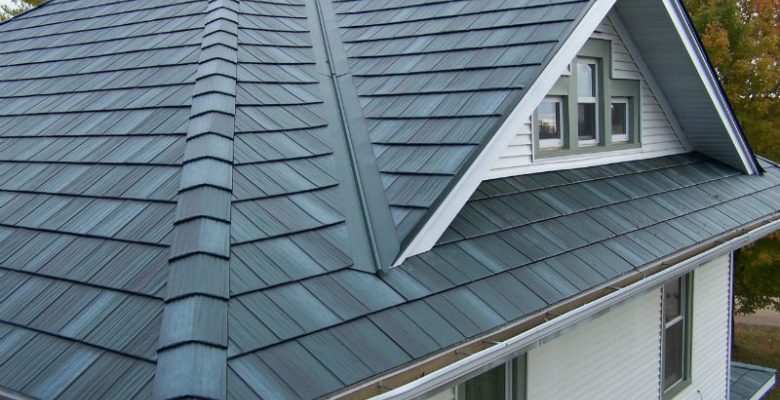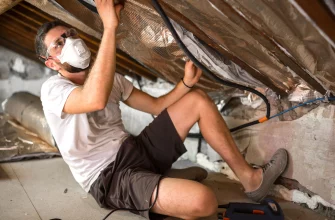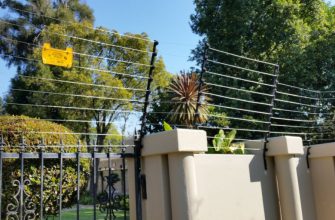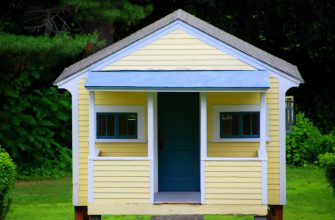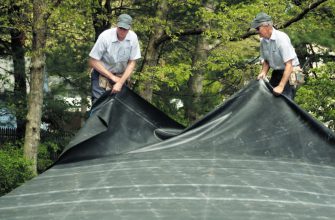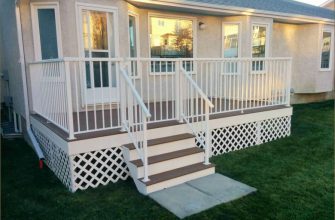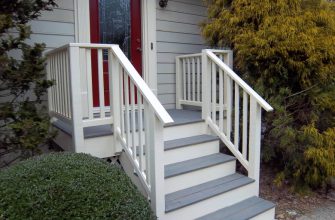Selecting the right roofing material for your mobile home is crucial to protect your investment and ensure the structural integrity of your home. The roof is constantly exposed to harsh weather elements like rain, snow, UV rays, and more. Choosing a durable, weather-resistant material tailored to your climate is key.
Additionally, factors like cost, longevity, maintenance needs, installation complexity, aesthetics, and regulatory requirements in mobile home parks should guide your decision. Investing in quality roofing matched to your home’s design avoids leaks, drafts, damage and the need for frequent repairs down the road.
This article explores popular mobile home roofing options—asphalt shingles, metal panels, rubber membranes, coatings—comparing the pros and cons of each. It also covers key considerations when selecting materials and hiring roofing contractors to ensure your new roof adequately protects your home and belongings for years to come.
- Common Roofing Material Options
- Shingles for Mobile Homes
- Pros of Shingles
- Cons of Shingles
- Fiberglass Shingle Roof for Mobile Homes
- Pros of Fiberglass Shingle Roof
- Cons of Fiberglass Shingle Roof
- Metal Roof for Mobile Homes
- Pros of Metal Roof
- Cons of Metal Roof
- Silicone Coating for Mobile Homes
- Pros of Silicone Coating
- Cons of Silicone Coating
- Factors to Consider When Choosing Roofing Materials
- Durability and Longevity
- Resistance to Weather and Extreme Conditions
- Maintenance Requirements
- Suitability for Specific Mobile Home Designs
- Installation and Repair Considerations
- Ease of Installation
- Repair and Replacement Options
- Other Considerations
- Regulatory Compliance in Mobile Home Parks
- Aesthetics and Value Addition
- Final Thoughts on Choosing the Right Roofing Material for Your Mobile Home
Common Roofing Material Options
Shingles for Mobile Homes
Pros of Shingles
Asphalt shingles are the most common roofing choice for mobile homes. Compared to other options, shingles have a lower upfront cost and offer decent durability. Their layered construction also provides good insulation.
They come in a range of styles and colors to match home exteriors, from basic 3-tab to dimensional and luxury shingles mimicking wood shakes or slate. Specialty fiberglass shingles are impact-resistant and algae-resistant for coastal climates.
Cons of Shingles
On the downside, shingles are less durable than metal or rubber roofs, only lasting 20-30 years. They’re vulnerable to damage from hail, falling branches, foot traffic, and require more maintenance.
Extreme weather also takes a toll, causing cracks, curling and leaks over time. Proper installation is key, as incorrectly nailed shingles are prone to blow-offs in high winds.
Fiberglass Shingle Roof for Mobile Homes
Pros of Fiberglass Shingle Roof
As a popular shingle upgrade, fiberglass options add durability and weather-resistance compared to standard asphalt. Made with a fiberglass mat embedded in asphalt, they are impact-resistant and less prone to cracks/tears.
Fiberglass shingles have Class A fire ratings and some meet impact standards for hail/hurricanes. Their color options are fade-resistant, and certain styles mimic wood or slate. Overall, they last 30-50 years with proper installation.
Cons of Fiberglass Shingle Roof
On the downside, fiberglass shingles are more expensive than basic asphalt. They can still be damaged by winds, storms, falling branches, foot traffic and require the same maintenance as asphalt to maximize longevity.
Fiberglass is also difficult to recycle. Over time, the sun’s UV rays cause the asphalt to break down, becoming brittle and crack-prone. Replacing damaged shingles on aging roofs poses challenges.
Metal Roof for Mobile Homes
Pros of Metal Roof
Metal roofs are a smart upgrade for mobile homes, offering unmatched durability and weather-resistance. Panels made from aluminum, galvanized steel, copper or zinc withstand extreme winds, storms, hail, falling debris without damage.
They have a significantly longer lifespan than shingles, typically 40-70+ years. Their reflective properties also make metal roofs energy efficient, reducing cooling costs. Metal adds curb appeal and resists mold, mildew, rot and pests.
Cons of Metal Roof
On the downside, metal roofing has a high upfront cost, 2-3 times more than asphalt shingles. Installation is also more complex, often requiring additional framing for support. And while durable, metal can dent from hail or traffic.
The noise from rain/hail is also amplified. While energy-efficient, the heat conductivity of metal and lack of attic ventilation can cause moisture issues. Proper installation is key for performance and longevity.
Silicone Coating for Mobile Homes
Pros of Silicone Coating
Liquid-applied silicone roof coatings offer seamless protection for aging mobile homes. The elastomeric silicone waterproofs and weatherproofs old shingle/metal roofs, preventing leaks, rust and damage.
The thick coating fills cracks and gaps, while allowing flexibility for expansion/contraction. Silicone coatings have a 25+ year lifespan, energy efficiency benefits, and simplify repairs. They are a cost-effective alternative to full roof replacement.
Cons of Silicone Coating
Application requires proper cleaning/prep of the existing roof and 2-3 coating layers. Cured silicone can be difficult to remove later and requires recoating every 8-12 years. Fumes during application also require safety measures.
While silicone adheres well overall, standing water areas may eventually peel. Any leaks/damage in the underlying roof can still translate to interior damage if not addressed before coating.
Factors to Consider When Choosing Roofing Materials
Durability and Longevity
A roof’s lifespan impacts maintenance costs and replacement frequency. While asphalt shingles are affordable initially, their 20-30 year lifespan means multiple replacements. Metal or silicone roofs minimize costs long-term with 40-70+ year durabilities.
Resistance to Weather and Extreme Conditions
Your climate determines suitable roofing materials. Frequent storms demand impact-resistant fiberglass shingles or hail-proof metal panels. Coastal climates need wind, salt-spray and UV/algae resistance. Seasonal temperature shifts require flexible materials like silicone coatings.
Maintenance Requirements
Compare material maintenance needs before deciding. Asphalt shingles require the most hands-on upkeep—clearing debris, repairs, sealants to maximize longevity. Metal panels and silicone coatings need little maintenance but may eventually need recoating.
Suitability for Specific Mobile Home Designs
Certain materials complement different home styles better. Composite shingles that mimic wood shakes or slate suit traditional designs. Standing seam metal roofing augments modern manufactured houses. Flat roof homes benefit from seamless silicone coating protection.
Installation and Repair Considerations
Ease of Installation
Installation plays a major role in roof performance. Complicated metal panel or tile roofs often require professional installers to avoid problems. Shingles are simpler for DIY application but still require care to properly stagger, space and nail. Silicone coatings involve thorough cleaning/prep work before brushing/rolling on 2-3 layers.
Repair and Replacement Options
Look for long-lasting materials, but also assess repair/replacement efforts needed down the road. Individual damaged shingles can be replaced but matching aging ones is tricky. Coatings simplify re-application over sound substrates. Metal doesn’t need replacement just dent removal or panel re-securing.
Other Considerations
Regulatory Compliance in Mobile Home Parks
Those in managed communities should review park rules before roofing upgrades. Certain materials like metal or coatings may be prohibited. Approvals ensure no fines, removal orders or sale barriers.
Aesthetics and Value Addition
Curb appeal matters, as an eye-catching roof can boost home resale value. Luxury shingles, simulated shake/slate and standing seam metal bring visual interest. Make sure chosen materials complement your exterior colors.
Final Thoughts on Choosing the Right Roofing Material for Your Mobile Home
Installing durable, weather-resistant roofing tailored to your climate protects home integrity and belongings. Carefully weigh the pros and cons of all material types—considering durability, maintenance needs, repair options and costs.
Additionally, factor in your community’s requirements, roof style and desired aesthetics. While initial purchase price does matter, lifespan savings from longer-lasting materials like metal and silicone make them smart investments to consider.
With the right roofing choice made for your specific mobile home, you can better safeguard your investment and avoid untimely replacement costs down the road.

